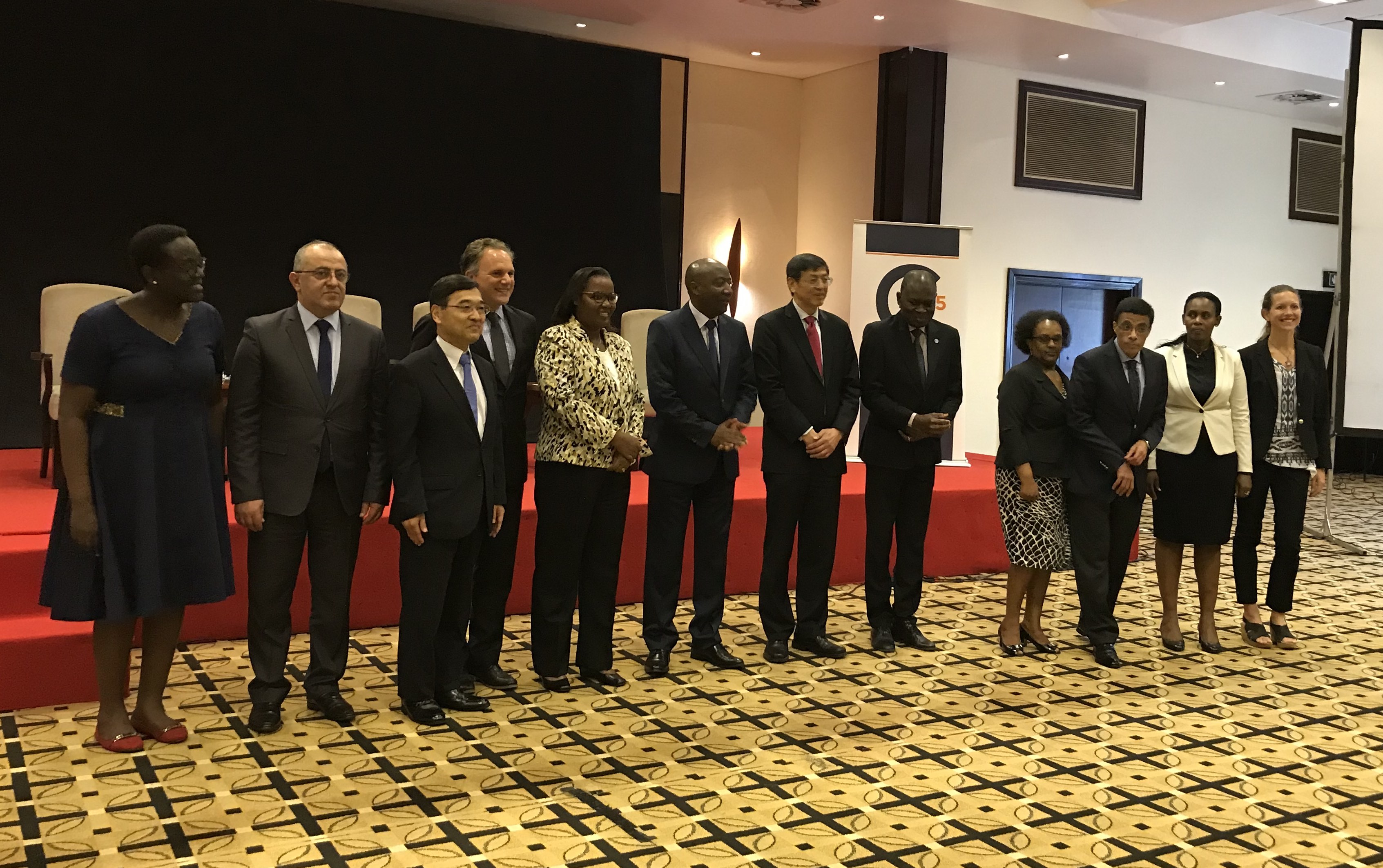Rwanda’s rural areas face development challenges including migration to cities and the growing pains of agricultural transformation. Government officials and experts discussed the country’s path to rural revitalization May 3 in Kigali at the Rwanda launch of IFPRI’s 2019 Global Food Policy Report.
Minister for Agriculture and Animal Resources Gerardine Mukushimana emphasized Rwanda’s commitment to inclusive development where no one is left behind. Focusing on food is key for rural revitalization, she said, and transforming rural economies is crucial to achieving the UN Sustainable Development Goals (SDGs).
The 2019 GFPR addresses the crisis in the world’s rural areas, where people continue to struggle with food insecurity, persistent poverty and inequality, and environmental degradation. There are many opportunities to improve the livelihoods of the rural poor when policies, institutions, and investments take advantage of new opportunities and technologies and facilitate increased access to basic services. Gender equality the promotion of good governance and careful consideration to the environment are a pre-requisite in making rural areas vibrant and healthy places to live and work.
Prime Minister Édouard Ngirente said the GFPR’s findings show that Rwanda is on the right path to rural revitalization. Rwanda has made great progress in rural development, he said, which is at the center of the national development strategies and programs. A prime example, Ngrirente said, is the Strategic Plan for Agricultural Transformation (PSTA 4) launched in Jan. 2018. The PSTA 4 aims at increasing productivity, investment in the agricultural sector, and promoting rural-urban market linkages key to achieving food security and rural transformation.
Creating jobs, especially for young people, is a critical aim of these efforts, Ngirente said.
While there are still some challenges, he said, Rwanda has also invested in the building more market facilities in rural areas, which will assist in advancing the country’s agriculture development. Maintaining progress on agriculture will be essential to achieving the SDGs of ending poverty and hunger and achieving food security by 2030.
Panelists—including Mukeshimana, Private Sector Federation Chairman Robert Bafakulera, and Hinga Weze Party Chief Daniel Gies—noted the importance of ensuring that Rwanda’s rural areas remain attractive places for people to live, requiring investments in infrastructure, education and medical facilities. The panel also emphasized the importance of having robust governance structures in place to give careful attention to the needs of the rural poor.
Nahume Yadene is a Program and Administrative Manager with IFPRI’s Development Strategy and Governance Division (DSGD) based in Addis Ababa, Ethiopia; Teunis van Rheenen is IFPRI’s Head of Partnerships and Business Development.







